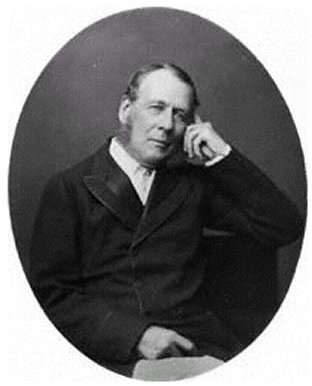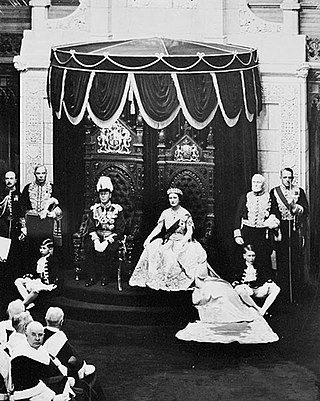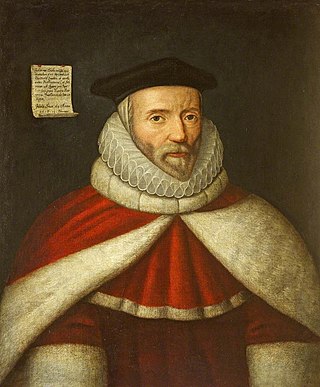Related Research Articles

A barrister is a type of lawyer in common law jurisdictions. Barristers mostly specialise in courtroom advocacy and litigation. Their tasks include taking cases in superior courts and tribunals, drafting legal pleadings, researching law and giving expert legal opinions.
The peerages in the United Kingdom are a legal system comprising both hereditary and lifetime titles, composed of various noble ranks, and forming a constituent part of the British honours system. The term peerage can be used both collectively to refer to the entire body of nobles, and individually to refer to a specific title. British peerage title holders are termed peers of the Realm. The peerage's fundamental roles are ones of government, peers being eligible to a seat in the House of Lords, and of meritocracy, the receiving of any peerage being the highest of British honours. In the UK, five peerages or peerage divisions co-exist, namely:

In the United Kingdom and in some Commonwealth countries, a King's Counsel during the reign of a king, or Queen's Counsel during the reign of a queen, is a lawyer who is typically a senior trial lawyer. Technically appointed by the monarch of the country to be one of 'His [Her] Majesty's Counsel learned in the law', the position originated in England and Wales. Some Commonwealth countries have either abolished the position, or renamed it so as to remove monarchical connotations, for example, 'Senior counsel' or 'Senior Advocate'.

Serjeant William Ballantine SL was an English Serjeant-at-law, a legal position defunct since the legal reforms of the 1870s.

Royal assent is the method by which a monarch formally approves an act of the legislature, either directly or through an official acting on the monarch's behalf. In some jurisdictions, royal assent is equivalent to promulgation, while in others that is a separate step. Under a modern constitutional monarchy, royal assent is considered little more than a formality. Even in nations such as the United Kingdom, Norway, the Netherlands, Liechtenstein and Monaco which still, in theory, permit their monarch to withhold assent to laws, the monarch almost never does so, except in a dire political emergency or on advice of government. While the power to veto by withholding royal assent was once exercised often by European monarchs, such an occurrence has been very rare since the eighteenth century.

The Inns of Court in London are the professional associations for barristers in England and Wales. There are four Inns of Court – Gray's Inn, Lincoln's Inn, Inner Temple and Middle Temple.

Esquire is usually a courtesy title.

The title of Senior Counsel or State Counsel is given to a senior lawyer in some countries that were formerly part of the British Empire. "Senior Counsel" is used in current or former Commonwealth countries or jurisdictions that have chosen to change the title "King's Counsel" to a name without monarchical connotations, usually related to the British monarch that is no longer head of state, such that reference to the King is no longer appropriate. Examples of jurisdictions which have made the change because of the latter reason include Mauritius, Zambia, India, Hong Kong, Ireland, South Africa, Kenya, Malawi, Singapore, Guyana and Trinidad and Tobago. Jurisdictions which have retained the monarch as head of state, but have nonetheless opted for the new title include some states and territories of Australia, as well as Belize.

A Serjeant-at-Law (SL), commonly known simply as a Serjeant, was a member of an order of barristers at the English and Irish Bar. The position of Serjeant-at-Law, or Sergeant-Counter, was centuries old; there are writs dating to 1300 which identify them as descended from figures in France before the Norman Conquest, thus the Serjeants are said to be the oldest formally created order in England. The order rose during the 16th century as a small, elite group of lawyers who took much of the work in the central common law courts.
The orders, decorations, and medals of Canada comprise a complex system by which Canadians are honoured by the country's sovereign for actions or deeds that benefit their community or the country at large. Modelled on its British predecessor, the structure originated in the 1930s, but began to come to full fruition at the time of Canada's centennial in 1967, with the establishment of the Order of Canada, and has since grown in both size and scope to include dynastic and national orders, state, civil, and military decorations; and various campaign medals. The monarch in right of each Canadian province also issues distinct orders and medals to honour residents for work performed in just their province. The provincial honours, as with some of their national counterparts, grant the use of post-nominal letters and or supporters and other devices to be used on personal coats of arms.
Alexander Martin Sullivan, SL was an Irish lawyer, best known as the leading counsel for the defence in the 1916 treason trial of Roger Casement. He was the last barrister in either Ireland or England to hold the rank of serjeant-at-law, hence his nickname The Last Serjeant.

Ignatius John O'Brien, 1st Baron Shandon, PC (Ire), known as Sir Ignatius O'Brien, Bt, between 1916 and 1918, was an Irish lawyer and politician. He served as Lord Chancellor of Ireland between 1913 and 1918.
United States Army commissioned officers rank insignia in use today.

The Order of Military Merit is a military honour for merit that is, within the Canadian system of honours, the second highest order administered by the governor in Council, on behalf of the Canadian monarch.

Sir John Simon, SL was a British serjeant-at-law and Liberal Party politician.

The Bar of Ireland is the professional association of barristers for Ireland, with over 2,000 members. It is based in the Law Library, with premises in Dublin and Cork. It is governed by the General Council of the Bar of Ireland, which was established in 1897. The Council is composed of twenty-five members: twenty who are elected, four co-opted, and the Attorney-General, who holds office ex officio. Every year, ten members are elected for two-year terms; five by senior counsel and five by junior counsel.

Sir John Croke was an English judge and politician who served as Speaker of the English House of Commons between October and December 1601. He also served as Recorder of London, and won the City of London constituency in his election to the 1601 parliament, being the last Speaker before the death of Elizabeth I, in 1603.

Anthony Malone was an Irish lawyer and politician.
Ireland has limited use of order of precedence.

Letters patent, in the United Kingdom, are legal instruments generally issued by the monarch granting an office, right, title, or status to a person. Letters patent have also been used for the creation of corporations or offices, for granting city status, for granting coat of arms, and for granting royal assent.
References
- ↑ One or more of the preceding sentences incorporates text from a publication now in the public domain : Chisholm, Hugh, ed. (1911). "Patents of Precedence". Encyclopædia Britannica . Vol. 20 (11th ed.). Cambridge University Press. p. 910.
- ↑ Pulling, S. A. (1884). The Order of the Coif. London: W. Clowes & Sons..
- ↑ Att. Gen. for Canada v. Att. Gen. for Ontario [1898] AC 247
- ↑ Todd. Parliamentary Government in Canada (2nd ed.). p. p.333.